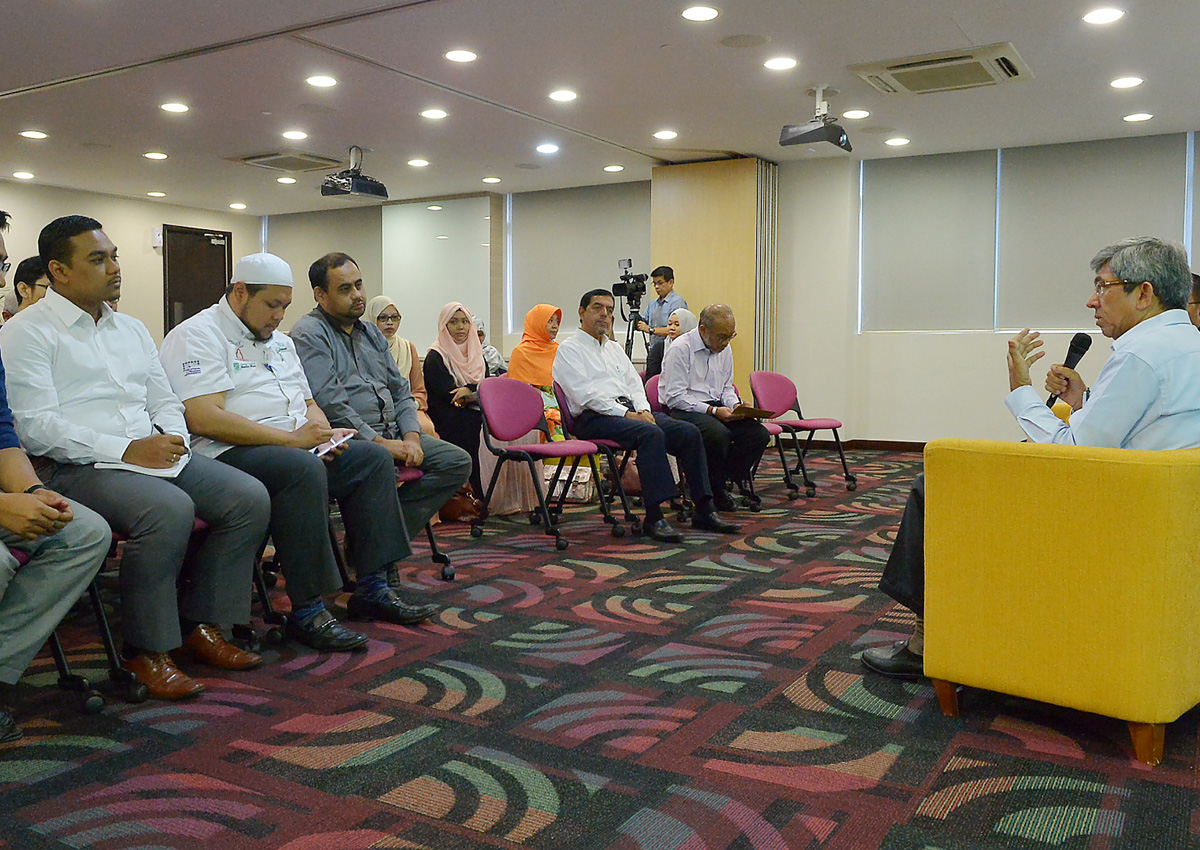Understanding and getting to know one another is how Muslims and non-Muslims can live in harmony, Minister-in-charge of Muslim Affairs Yaacob Ibrahim said yesterday.
“We need to strengthen the inter-faith understanding, not just at the leadership level, but right down to the common folks,” he told reporters after a closed-door dialogue with 25 religious teachers, or asatizahs.
The dialogue, held at the Islamic Religious Council (Muis) Academy, was part of a programme for the group, who have just completed their Advanced Asatizah Executive Development Programme.
Dr Yaacob said religious teachers have a role in ensuring that younger generations of Muslims understand the social context of Singapore and how they can live together “side by side in harmony” with non-Muslims.
One way of ensuring this harmony, he suggested, was to keep young Muslims curious about various non-Muslim groups.
He also noted that religious teachers can contribute by helping to formulate policies that can move “both nation and community forward”.
Dr Yaacob’s comments came after Law and Home Affairs Minister K. Shanmugam warned that non-Muslims could start developing negative attitudes towards Muslims as a recent string of terror attacks threatens to fray the trust among communities here.
Dialogue participant Liyana Musfirah Anwar, 23, who designs curriculum for Islamic school Safinah Holdings, has heard about students being harassed and called names for being Muslim.
In those instances, she advised her students to “be the bigger person”, and show by example what Islam is about, and told them that the negativity will stop.
Another participant, Mr Muhammad Zahid Zain, 32, head of the charity Bapa Relief, was concerned about the role of younger religious teachers. “Nowadays, the challenges are real, the questions are getting more intellectual,” he said.
“People read more, and they ask for clarifications. It’s a healthy thing to be challenged, so we can live up to the needs of the society.”
Ms Hanna Taufiq Siraj, head of the Muis Academy, said there are programmes to develop religious teachers into inter-faith leaders.
Dr Yaacob also noted that there are inter-faith programmes in place.
She also said madrasahs, or Islamic religious schools, are becoming more open. “There is collaboration between madrasahs and secular schools initiated by religious teachers who understand the need for integration,” she said.
jalmsab@sph.com.sg

This article was first published on April 1, 2016.
Get a copy of The Straits Times or go to straitstimes.com for more stories.






